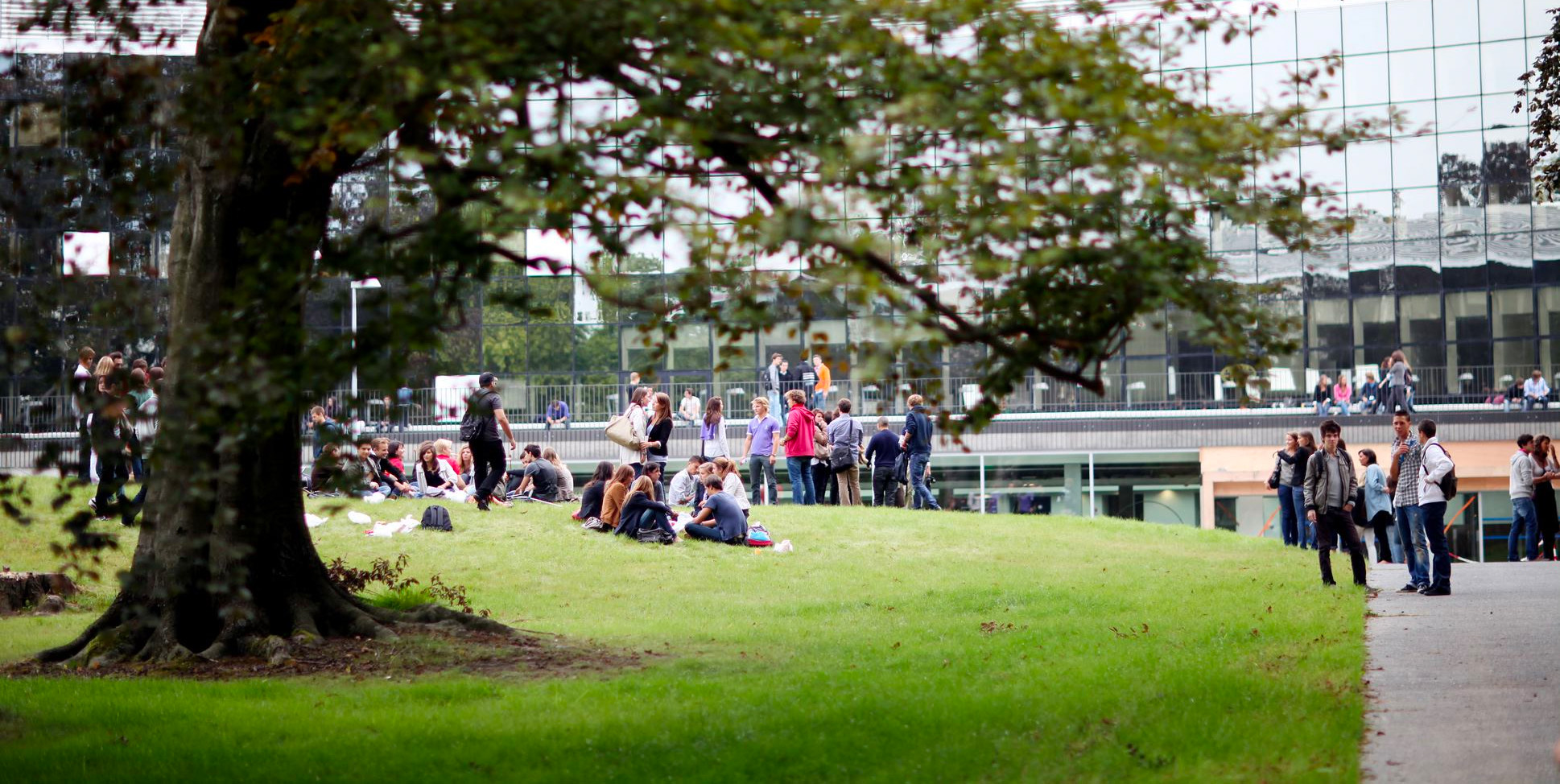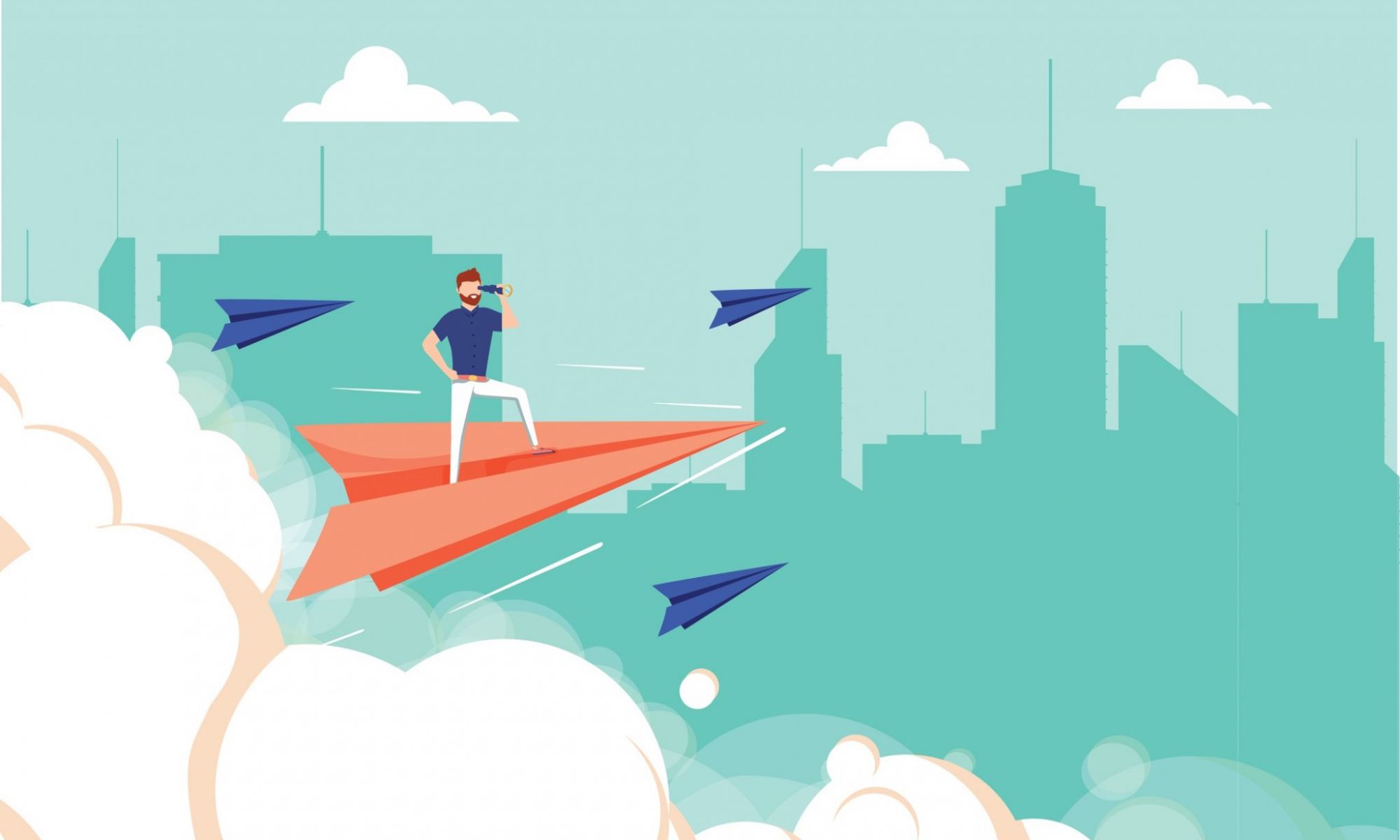You must login/create an account to view this content
Six ways to ensure remote working works for your whole household
You must login/create an account to view this content
Avoiding irrelevance and moving forward with innovation
Does your business risk irrelevance? It will soon if three fundamental innovation perspectives are ignored, says Berlin School of Business and Innovation’s Alexander Zeitelhack
In recent years, innovation has become a hot topic and a leading approach with regards to technology, and across many other sectors. The need for innovation and the forms it assumes are a fast-changing reality, calling for adjustments and an ability to adapt from those who are looking to make the most of this.
This article offers three different perspectives and some useful pointers to guide you through some of the still-uncharted territories of innovation.
Three key perspectives on innovation
1. There is the need for a different approach to the way we look at things in day-to-day life. When we try to solve the same problems every day, with the same methods and tools, we are ignoring the need and request for progress.
Everything around us is evolving and developing, and we need to be aware that we cannot survive with the ‘endless growth model’ of economy, as firstly, we’d run out of resources, and secondly, there will be no real improvement.
2. Looking at things we cannot account for, whether this is in business or life. These unknown elements are our enemies. Should our competitors find one of those, we could easily be replaced in the marketplace. Innovation, creation and management are the minimum protections against this threat. Combined, they can help to identify potential issues before they arise and, most importantly, allow them to be dealt with in an effective manner.
3. An invitation to broaden our horizons and outlooks. In society, there is always a need for a specific product or service, and then there is the solution, or product, that fulfils this need. This means that if we only look at what we do (inside), then we will miss what is needed on the outside. This would be a failure to reach out to both existing and potential audiences and customers, affecting our results.
Ignoring any of the three perspectives above can culminate in a loss of relevance among people and consumers. This happened to the music industry when it tried to ignore MP3 technology, and it will happen to businesses that ignore climate change.
Investing in innovation
With its ever-changing nature, it might be difficult to identify precisely how much businesses should invest in innovation. This doesn’t only apply to infrastructure, but also to a variety of elements that make for a successful business.
A business should make projections for the market size of a future market segment that it wants to explore, a bit like real estate development. Then the future profit in that segment can be calculated and, I would advise, a fivefold increase of annual profits can be planned.
A business should create a story, or narrative, for its corporate culture to attract more young entrepreneurial thinkers. This will have an effect on employer branding and internal competitiveness.
Having a clear focus on diversity – of gender, culture, language, and age – is also important. For example, younger hires that are grouped into teams with senior management might be able to convince with determination and motivation, in spite of their relative lack of experience.
It’s also a good idea to create a working space that looks and feels different, and that can become a factory of ideas. It’s worth investing in a great architect as well as hiring agile coaches and design thinking experts to lead innovation teams.
Unleash talent
For any business that is looking to make the most out of the competitive advantages of optimising operations to drive innovation and creativity, it’s imperative to begin by getting the next generation of creative, global and diverse-minded managers on board.
Make your innovation process the home and castle that these emerging talents need and don’t let the future leave you behind.
Alexander Zeitelhack is Associate Dean at Berlin School of Business and Innovation (BSBI). He has also been teaching media management, future research and social entrepreneurship at Nuremberg Institute of Technology for 25 years, where he held the position of Managing Director from 2009-2013.
The power of purpose: fuelling employees’ motivation
The power of purpose: fuelling employees’ motivation


An account of how a walk into the unknown and the plight of late 19th-century farmers in the southern Netherlands provided a powerful means of injecting purpose into employees of Rabobank, from the book Alive at Work
At some point, we’ve all felt underwhelmed by what we do at work – bored and creatively bankrupt. In these moments, we’ve lost our zest for our jobs and accepted working as a sort of long commute to the weekend. Yet even though we’ve all been there, it can be frustrating when our people aren’t living up to their potential. It’s exasperating when employees are disengaged and don’t seem to view their work as meaningful. It can be hard to remember that employees don’t usually succumb to these negative responses for a lack of trying. They want to feel motivated. They seek meaning from their jobs.
But their organisations are letting them down. We can do a much better job at maintaining their engagement with their work. But first, we need to understand that employees’ lack of engagement isn’t really a motivational problem. It’s a biological one. Here’s the thing: many organisations are deactivating the part of employees’ brains called the ‘seeking systems’. Our seeking systems create the natural impulse to explore our worlds, learn about our environments, and extract meaning from our circumstances. When we follow the urges of our seeking systems, they release dopamine – a neurotransmitter linked to motivation and pleasure – that makes us want to explore more.
With small but consequential nudges and interventions from leaders, it’s possible to activate employees’ seeking systems by encouraging them to play to their strengths, experiment, and feel a sense of purpose.
The power of purpose
One of the triggers that activates the seeking system is purpose. Purpose is energising. It lights up our systems and gives us that jolt of dopamine. But because purpose is personal and emotional, it is difficult for leaders to instill it in others. It’s one thing to read about something in a business book and another to put it into practice. So how do we create the feeling of purpose and make sure it lasts? To have a shot at success, you need to help employees witness their impact on others, as the case of Rick Garrelfs shows.
Rick, who was a leader at Rabobank for 18 years, told me about an experience he developed to help high-potential employees understand the meaning of their work. Working with a consulting organisation, Garrelfs and his team told the 60 employees: ‘At 5am, be at Eindhoven [a city in the northern part of the Netherlands] Central station.’ They did not divulge any further information to the participants, which naturally caused some curiosity and concerns. Some of the people called and protested: ‘But the trains are not running at 5am’ or ‘I live far away, so I will need a hotel.’ The team responded to these concerns by saying: ‘Yes, that is correct’ to retain the mystery.
People started arriving at the station from 4:30am, and the team made sure the café was open and coffee and rolls were available. Around 5:15am, Garrelfs started walking from the station (the group followed naturally at that point) into a waiting coach, which took them on a 30-minute drive into the dark, away from town. The bus stopped, the group exited and started walking into the fields, with Garrelfs in front with a light, and someone from the consulting firm with a light at the rear.
After 30 minutes, they arrived at a line of trees, where they saw a man standing with a candle. As the group gathered around him, still in the dark of early morning, the man started to speak about the situation of farmers in the late 19th century in the southern Netherlands. He spoke about the farmers’ daily problems, their poverty, and the harshness of their existence. He described how the Dutch priest, Pater Gerlacus van den Elsen, used his local influence to bring farmers together, so that those that had some money could lend it to those that didn’t for investment.

As the man spoke, the sun slowly started to light the scene – the landscape and the group of people – and the group recognised the speaker. He was Bert Mertens, Senior Executive of Cooperative Affairs and Governance of Rabobank, and a direct report to the executive board. Bert was seen as the ‘conscience’ of cooperative thinking in the bank. His core message: Rabobank emerged from the misery of farmers, and we should never forget that.
Bert then walked the group across the farm fields, to a house where they were served breakfast by the farmers, who were long-time members of Rabobank. The farmers talked about the life of farming now, the difficulty of keeping a medium-sized farm alive, and what they did to make ends meet.
Although this had only been the start of the first day of a programme, years later the participants picked out this particular moment as perhaps the most important experience for them in terms of understanding the meaning of Rabobank.
Changing the way employees think and feel about their work
It is one thing for a leader to talk in a meeting about the mission of connecting banking to agriculture. This can be logical and strategic, and a leader can even put pictures of farms on the PowerPoint deck. It is another thing to have a personal experience: to walk in the fields, to connect with nature in the early morning, to eat and talk with the farmers who you serve as a bank.
Imagine how this firsthand experience could change employees’ stories about why they do what they do, and how it might help newcomers fashion their own purpose story. This sense of purpose could help employees make decisions that align with Rabobank’s purpose, but also help them see their work as something worth doing.
This is the power of purpose: it activates the seeking system and makes life feel better. When we understand the powerful humanistic results of purpose – not to mention the economic benefits of building purpose into businesses – then our quest as leaders changes. Our mission moves from ‘how can I make this job more efficient, predictable, and controlled?’ to ‘how can I give my team firsthand experiences that allow them to personalise the meaning of their work?’ This is a powerful new way to think about employment – as a chance to light up employees’ seeking systems instead of shutting them down.
This is an edited excerpt from Alive at Work: The Neuroscience of Helping Your People Love What They Do by Dan Cable (Harvard Business Review Press, 2018).
Read more Business Impact articles related to leadership:

Missing in action: reframing how we think leaders should look and act
If you aren’t a leader characterised by energy and dynamism, the general consensus is your story isn’t worth telling. Martin Gutmann explains why we need to widen the net of those profiled in case studies at business schools

How to diagnose your business symptoms and address the underlying issues
In business, we rarely distinguish between symptoms and root causes, says Jim Vaselopulos. Discover how you can diagnose symptoms effectively and identify the problems that need addressing

Why investing in your future leaders should be a priority
“Nurturing talent takes time, but it is worth it and it can save you from having to make key hires later.” The former CEO of finnCap Group Sam Smith offers her advice on growing a team of superstars
Want your business school to feature in
Business Impact?
For questions about editorial opportunities, please contact:
Tim Banerjee Dhoul
Content Editor
Business Impact

Share this page with your colleagues
Opening the minds of tomorrow’s leaders
You must login/create an account to view this content
Seven tips for impressing a robot recruiter
You must login/create an account to view this content
What a post-Covid global economy will look like
From shared trauma to stocking up on gold, a look at the markets’ reaction to the ‘Black Swan’ event that is Covid-19 and what this means for the near future
Markets inevitably fall when events the magnitude of the Covid-19 pandemic occur. We can label this outbreak under the category of ‘unknown unknowns’ and, economically speaking, there is never a ‘good’ unknown unknown, because there is no basis for the market to respond.
This means that the market cannot make a tight valuation of how it trades, or even where to trade, as the world’s markets are all suffering the same trauma. Oil dropped to historic lows in April as demand fears forced the prices into freefall. Yet gold, the traditional asset of the terrified, is on the up.
The last great pandemic is out of living memory for all but the planet’s very oldest, having occurred almost exactly 100 years ago, in 1918. Since China announced its lockdown, shock has led to panic across the world. The result is that the markets can only come up with spurious evaluations as they trade because they have no precedent to go on and because no one is certain if they should be buying or selling, or at what price.
This means that prices are currently fragile. It is this fragility that has translated into the crashing and zooming of prices currently taking place on the world stage. This increased volatility is actually a good thing for traders, but it is a bad thing for investors and is usually a precursor of even more grim things to come, because certainty is an asset and uncertainty is a constraining liability.
Heading back to normality
The global markets are all interlinked, and market prices represent the best estimates of what are essentially a group of highly motivated, informed, and intelligent fortune tellers. Once volatility levels start to come down (and they have done) we can start to breathe a little easier. This is a sign that things are starting to point back in the direction of normality.
But the crash hasn’t been as deep as many had feared. There are essentially two types of market crash: a crash of 25%, and a crash of 40% or higher. The former – which we have seen, is likely to give everyone an uncomfortable ride for the next couple of years. A recession yes, but not a big depression. With a slump of 40% or more, we would have been looking at a bumpy ride for at least half a decade.
By looking at how the market has reacted now, we can measure how the global economy will pan out over the next year. This is because the market, by nature, looks out over the course of the year ahead. So, what you see in today’s Dow and FTSE is likely to be similar to what you would see if you could peer into the future, in early 2021.
Predicting the future
The theoretical physicist, Niels Bohr, once quipped: ‘prediction is very difficult, especially about the future.’
But by looking at how the markets reacted to the very worst, most uncertain and shocking unfolding of the pandemic, it is possible to plan accordingly. To know with a fair amount of certainty that, without some other global catastrophe, the direction the global market has already taken is predictive of the trend of the global economy for the coming year.
The slump levels we have witnessed have not been a total surprise, because they were very high worldwide prior to the Covid-19 pandemic. Coupled with the fact that the central banks, including the Bank of England, have been totally nonplussed as to how to mitigate the situation.
There are still likely to be bumps in the road on the way. Costly mistakes that could make the situation worse. But the good news is that, according to the current statistics, the markets should bounce back quickly from the present disruption Covid-19 is making. The market will move to drive the economy back quickly in order to appease or prevent a bad situation from becoming a chronic one.
The Covid-19 pandemic can also be described as a ‘Black Swan’ event. A Black Swan is an event that no one could have predicted coming, but in hindsight, always seemed inevitable. In actual fact, the last pandemic was scarcely a decade ago when the H1N1 virus (also known as swine flu) killed tens of thousands across the world. We have also had two far deadlier coronaviruses than Covid-19 pop up in the last 20 years (SARS and MERS, with fatality rates of 10 and 32%, respectively). So emerging viruses, epidemics and even pandemics are more common than we would like to admit. The problem is, we have always been able to look the other way. Until now.
This pandemic – like the next market slump – was inevitable. But hopefully we can learn from Covid-19 how to react, prepare for, and mitigate the next virus outbreaks in the years to come.
Richard Chamberlain works with Oakmount Partners, a UK-based investment consultancy firm.
Reducing application risk after Covid-19
In light of the threat of continuing restrictions after Covid-19, reducing the element of risk for prospective students weighing up where to apply is essential, says Libreka’s Soumik Ganguly
The study abroad sector and international student mobility have been hit hard by the closure of university campuses across major study destinations, travel/immigration restrictions across the board, and partial or complete lockdowns across almost all major countries due to Covid-19.
While multiple surveys have shown that many students’ study-abroad plans have been impacted in the short term, there is also some positive data about deferment rather than cancellation of such plans – particularly among international students. In the mid to long term, therefore, the outlook may not be as bad as it might at first appear. Many students will still want to travel to the world’s major study destinations to kickstart their international careers.
However, not a lot has been done to help students navigate through the course of the next phase of planning and preparations that will be essential. Application loss risk remains a major issue for them, for factors that are entirely not relevant to their application profile, eligibility, or the strength of their application itself. Ongoing limiting factors – including sudden travel restrictions and visa challenges may remain long after the major lockdown period is over and are likely to be the primary reasons for the loss of an application. This can deflate a student’s motivation to study abroad.
Combatting deflated motivation
Prospective students should be granted a degree of application ‘immunity’ during these uncertain times. They should be entitled to refunds on any fees paid for applications they have since been forced to retract due to circumstances beyond their control. This would allow them to focus on applying to their choice of post-graduate programmes, whether they want to study a full-time MBA or pre-experience master’s, and whether they are looking to study in the UK or Germany, Canada or the US. In other words, their ‘new normal’ when it comes to considering their options should be the same as their old normal as far as possible.
That’s the reason behind the launch of Libreka’s Application Immunity programme. The programme verifies students’ academic credentials (degree certificate, transcripts) and uses an AI-powered match-analysis to recommend a shortlist of programmes that candidates can then choose to add to their personalised immunity programme. To ensure that all immunity conditions are met, Libereka manages the admissions process, from application prep to submission, for students’ shortlisted programmes.
The Application Immunity programme links up with Libreka’s existing blockchain-based scholarship system, which allows higher education providers to offer conditional scholarship and microfinancing options to candidates who may have a longer application cycle, keeping them in touch with candidates, while receiving their commitment to enrol.
The reduction and removal of risk will be of more importance than ever for those making life-changing decisions about their future education, and those who provide it.
Soumik Ganguly is CEO of admissions consultancy, Libereka.
Where next for the hospitality industry?
Relationship-building, trust and why students should be flexible over where they set their career sights within the hospitality industry. The short-, medium- and long-term outlook for one of the hardest-hit sectors during the Covid-19 pandemic
The hospitality industry is among the sectors that have been hit hardest by Covid-19 with more than $2.1 trillion USD of GDP loss at risk, according to the World Tourism Organisation (UNWTO). Yet, the sector has shown strong resilience in the past to cope with the effects of 9/11, the financial crisis of 2008 and the SARS virus, and is known for its V-shaped recovery curves.
As one of the world’s largest economic sectors, providing 330 million jobs, the hospitality industry will also be a key driving force of economic recovery. The travel and tourism sector, in particular, has been leading the way in providing employment and other opportunities for women, youth and rural communities. Even so, the global education industry and those who specialise in hospitality education must transform with utmost agility in order to adapt to the situation.
Short term: digital and trust
The outbreak’s repercussions are still very difficult to evaluate globally. UNWTO has estimated that 75 million jobs are at risk along with 80% of small and medium-sized enterprises. Many corporations are taking drastic measures to ensure continuity of their businesses once demand returns. For instance, hotel chains such as Hilton Hotels & Resorts closed a large number of establishments temporarily.

Covid-19 is also acting as a catalyser of digitisation as businesses will need to create or improve their online services. In order to be competitive and recover from the crisis, businesses will also need to think creatively about their operations. They will need to enhance their logistics and delivery systems to accommodate surges in demand based on changes to consumer preferences or new behaviours in readiness for any future pandemic.
Covid-19 might have changed the way we work, interact, shop and spend time but it will not change who we are and what we want from life. Having had time to reflect, people will value authenticity and meaningful values more than ever before. And finally, after months of isolation and anxiety, customers the world over will want to experience life again. Companies which will figure out how to offer rethought and authentic experiences will be leading the way.
Building or re-building trust with customers will be at the core of the experience. Health and safety protocols are now basic to any product, service or brand promise. A recent study from media agency network, Mindshare, shows that trust will be at the core of the relationship between a business and the customer more than ever.
Brands and companies that are ethical today and place people before profits, investing in medical research or supporting local communities, for example, are building their relationship with the consumer of tomorrow.
Medium term: preparing students for change
Today more than ever, education is key to being able to cope with the changes and challenges of our times. To enable students to make the most out of this remote learning period, Glion Institute of Higher Education (Glion) has implemented small group sessions of expert coaching in revenue management, hotel valuation and spa management in collaboration with fellow member of the Sommet Education Group, Les Roches Global Hospitality Education. These complimentary courses are designed to meet industry needs and allow students to obtain professional certificates in addition to their academic degree.
Glion has also created the series, ‘Leading Hospitality Through Turbulent Times’, which gives students the opportunity to attend interactive sessions hosted by both faculty members and leaders from hospitality, finance, luxury and other key sectors. From these panel discussions, individual guest speakers, webinars and Q&A sessions, students can gain knowledge that will better prepare themselves for their future careers.
Educational institutions are already at the forefront of the required transformation. Relying on emotional intelligence to manage complex environments, reinventing models, mastering the codes to better create new ones, and being committed to a sustainable future, are all part of what we are seeking to transmit to our students.
Long term: career prospects in hospitality after Covid-19
According to some analysts, domestic tourism will recover faster than international tourism and mid-scale demand is expected to recover faster than upscale and luxury demand. According to Chris Gray, Founder of consumer psychology consultancy, Buycology, and among the first to study the shopper psychology field, consumers will feel the need to build their identity and show the world how well they are doing to compensate for the level of anxiety and insecurity felt during this time. However, spending in luxury is usually reasoned by emotions and feelings rather than rationality, making this area harder to predict.
For students to succeed in job hunting after the crisis, a key element is flexibility. They should have a high degree of flexibility around what segment of the industry they would like to work in and around geographic location. With new markets in development and becoming more popular with tourists, such as Saudi Arabia, the number of opportunities worldwide is increasing, and it is important for students to take these opportunities to develop themselves and build their career. Another key element is personal network. For Fabrice Tessier, Vice President of School Relations and Partnerships at Accor, your network is where you should be investing your time ahead of the rebound.
Students who intend to pursue careers in the hospitality industry should not be worried about the situation post-crisis. One of the primary reasons this industry is so popular is the wide range of career opportunities it offers across so many different types of businesses and organisations around the world. This means students have a limitless number of options for building a career in a variety of sectors such as hotels and resorts, FMCG, events management, restaurants and foodservice, cruise ships and airlines, theme parks and casinos, retail and fashion, consultancy, tourism and many more.
Georgette Davey is Managing Director of Glion Institute of Higher Education, having previously launched Glion’s campus in London and served as Dean of its campus in Switzerland. She has 25 years of experience in academic leadership and hospitality management.
Using challenging times to your advantage
You must login/create an account to view this content












